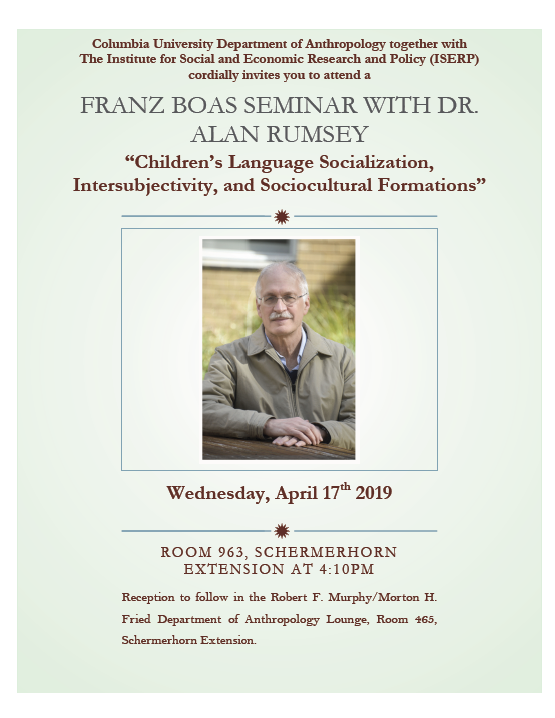Reception to follow in the Robert F. Murphy/Morton H. Fried Department of Anthropology Lounge, Room 465, Schermerhorn Extension.
Alan Rumsey
Australian National University
Affect theorists such as Brian Mussumi and Nigel Thrift have argued against what they see as an overemphasis on language in theories of subjectivity, instead calling for new forms of understanding which do not involve ideas of "representation" or "signification." In that respect their work is reminiscent of Pierre Bourdieu’s earlier attempt to counter what he saw as an overemphasis on language in social theory with his notion of habitus as a medium of social reproduction through which "what is essential goes without saying because it comes without saying." Both these kinds of critique miss their mark insofar as they equate language in general with only one of its functions: the communication of explicit propositions about the world. When we focus on language and speech as a dimension of action in the world they too can be seen to function in ways that "go without saying." The evidence for my argument along these lines will be drawn from research I have been doing in collaboration with Francesca Merlan on children’s language socialization in the Ku Waru region of Highland Papua New Guinea. Focusing on video recordings of interactions between children and parents there I will show that four different kinds of process are going at once: language learning, the development of children’s capacity for intersubjective engagement, the development of particular kinds of subjectivity, and the reproduction and transformation of more inclusive sociocultural formations within which the interaction takes place. Such a composite focus, particularly on interactions involving children, has great potential for shedding new light on issues of subjectification, agency, continuity, and change which are central not only to linguistic anthropology but to sociocultural anthropology and to social theory more generally.
